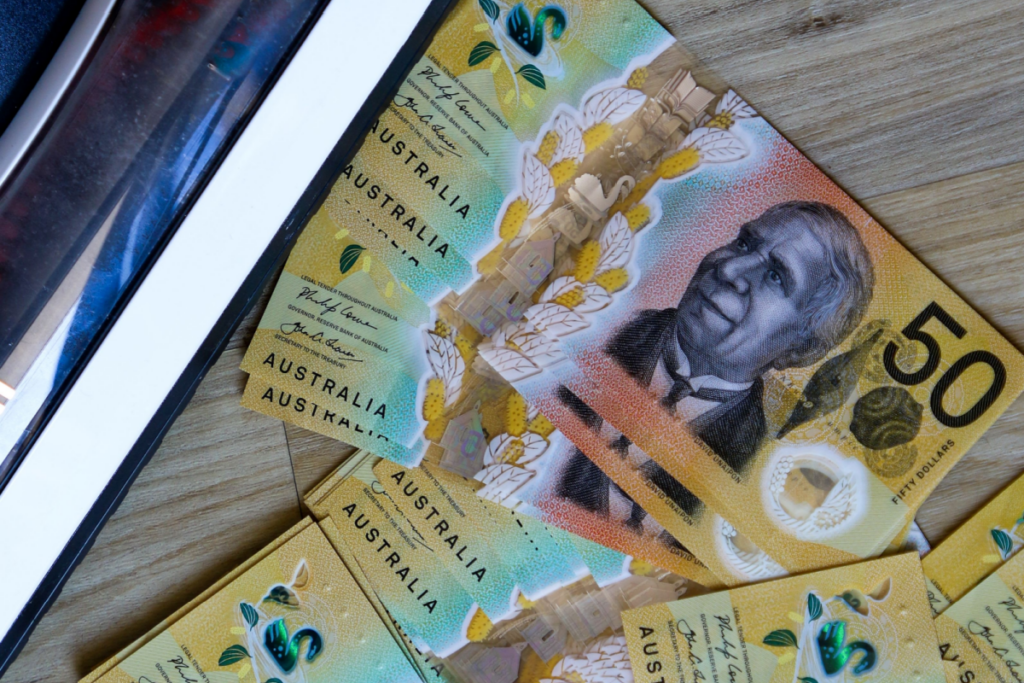Money laundering and the use of money mules are intricately entwined practices that pose significant challenges to Australian financial systems.
In this article, we will explain the criminal offence of money laundering and the regulatory measures the NSW legal system takes to stop money mules from being recruited.
What is Money Laundering?
Money laundering is the process where profits derived from illegitimate means appear to come from a legitimate source. Money laundering allows people to use funds from proceeds of crime for personal use because it turns ‘dirty’ money into ‘clean’ money. The money laundering process has three stages:
- Placement: physical cash from proceeds of crime enters the financial system.
- Layering: illegal funds are moved around to disguise or conceal their illegitimate source.
- Integration: the proceeds of crime funds appear to have a legitimate source and can be used without raising suspicion.
What Is a Money Mule?
A money mule is a person who transfers illegally obtained money between different payment accounts, very often in different countries, on behalf of others.
People also recruit money mules to receive money into their bank accounts, withdraw it, and, in most cases, transfer it overseas, receiving a commission in return for the provided services.
In recruiting money mules, people tend to target people who fit one or more of the following characteristics:
- Recently arrived to the country
- Students
- Unemployed
- In economic distress
What Are the penalties for being a money mule?
Although money mules are not directly involved in the crimes which generate illicit profits, they are acting illegally by laundering the proceeds of crime, and therefore facilitating the operations of international criminal syndicates.
Penalties for acting as a money mule can range from a fine to imprisonment, along with the prospect of being prohibited from securing a mortgage or opening a bank account.
Money Laundering In Legislation
NSW Legislation
In NSW, money laundering is dealt with by Part 4AC of the Crimes Act 1900 (NSW). If you are charged under this part, you may be liable for imprisonment for 20 years if found guilty of the offence of money laundering.
The prosecution must prove beyond reasonable doubt that the person has knowingly dealt with the proceeds of a crime and that they deliberately tried to conceal their use of those proceeds.
If a person has dealt with the proceeds of crime knowingly but did not try to conceal it, the maximum penalty is reduced to 15 years.
If a person has been reckless in dealing with the proceeds of crime, the maximum penalty is 10 years.
Commonwealth Legislation
Money laundering offences are defined in Part 10.2 of the Criminal Code Act 1995 (Cth) under the Commonwealth regime.
The offences operate on a sliding scale of seriousness.
The Court must firstly consider how much money is involved in the offence. Penalties range from the least serious (amounts less than $1,000) to the most serious (amounts in excess of $1 million).
The second consideration the Court must take into account is what level of knowledge the person had of the illegally obtained money – negligent, reckless and intentional.
The most serious offence of laundering over $1 million with intent carries a maximum penalty of 20 years imprisonment.
The relevant penalties are outlined below:
| 400.3 | 400.4 | 400.5 | 400.6 | 400.7 | 400.8 | ||
| Value of money/ property | $1million or more | $100,000 or more | $50,000 or more | $10,000 or more | $1000 or more | Any value | |
| Penalty | Ss (1) Intention | 25 years | 20 years | 15 years | 10 years | 5 years | 12 mths |
| Ss (2) Reckless | 12 years | 10 years | 7 years | 5 years | 2 years | 6 mths | |
| Ss(3) Negligent | 5 years | 4 years | 3 years | 2 years | 12 mths | $1,100 fine (10 penalty units) |
Key Takeaways
- Money mules are individuals who transfer illegally obtained money, often linked to cybercrime.
- Recruitment targets include those newly in the country, students, unemployed, or in economic distress.
- Being a money mule involves legal risks, including fines and imprisonment.
- Money laundering disguises the origins of criminally obtained money through placement, layering, and integration.
- NSW and Commonwealth legislation impose severe penalties for money laundering.
- he #DontBeAMule campaign by the AFP, Europol, and EMMA aims to raise awareness and prevent money muling.
Written By

James Janke
James Janke is founding partner at Hamilton Janke Lawyers, and has more then decade of experience as a Criminal Defence Lawyer. Admitted to both the Supreme Court of New South Wales and High Court of Australia




